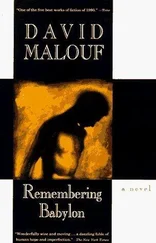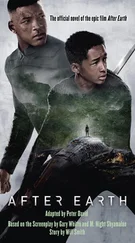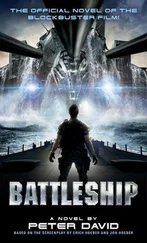All that first time up the line was like some crazy camping trip under nightmare conditions, not like a war. There was no fight. They weren’t called upon in any way to have a go.
But even an invisible enemy could kill.
It happened out of the lines, when they went back into support. Their section of D company had spent a long afternoon unloading ammunition-boxes and carrying them up. They had removed their tunics, despite the cold, and scattered about in groups in the thin sunlight, relaxed in their shirtsleeves, were preparing for tea. Jim sat astride a blasted trunk and was buttering slabs of bread, dreamily spreading them thick with golden-green melon and lemon jam. His favourite. He was waiting for Clancy to come up with water, and had just glanced up and seen Clancy, with the billy in one hand and a couple of mugs hooked from the other, dancing along in his bow-legged way about ten yards off. Jim dipped his knife in the tin and dreamily spread jam, enjoying the way it went over the butter, almost transparent, and the promise of thick, golden-green sweetness.
Suddenly the breath was knocked out of him. He was lifted bodily into the air, as if the stump he was astride had bucked like an angry steer, and flung hard upon the earth. Wet clods and buttered bread rained all about him. He had seen and heard nothing. When he managed at last to sit up, drawing new breath into his lungs, his skin burned and the effect in his eardrums was intolerable. He might have been halfway down a giant pipe that some fellow, some maniac, was belting over and over with a sledge hammer. Thung. Thung. Thung.
The ringing died away in time and he heard, from far off, but from very far off, a sound of screaming, and was surprised to see Eric Sawney, who had been nowhere in sight the moment before, not three yards away. His mouth was open and both his legs were off, one just above the knee, the other not far above the boot, which was lying on its own a little to the left. A pale fellow at any time, Eric was now the colour of butcher’s paper, and the screams Jim could hear were coming from the hole of his mouth.
He became aware then of blood. He was lying in a pool of it. It must, he thought, be Eric’s. It was very red, and when he put his hands down to raise himself from his half-sitting position, very sticky and warm.
Screams continued to come out of Eric, and when Jim got to his feet at last, unsteady but whole (his first thought was to stop Eric making that noise; only a second later did it occur to him that he should go to the boy’s aid) he found that he was entirely covered with blood — his uniform, his face, his hair — he was drenched in it, it couldn’t all be Eric’s; and if it was his own he must be dead, and this standing up whole an illusion or the beginning of another life. The body’s wholeness, he saw, was an image a man carried in his head. It might persist after the fact. He couldn’t, in his stunned condition, puzzle this out. If it was the next life why could he hear Eric screaming out of the last one? And where was Clancy?
The truth hit him then with a force that was greater even than the breath from the ‘minnie’. He tried to cry out but no sound came. It was hammered right back into his lungs and he thought he might choke on it.
Clancy had been blasted out of existence. It was Clancy’s blood that covered him, and the strange slime that was all over him had nothing to do with being born into another life but was what had been scattered when Clancy was turned inside out.
He fell to his knees in the dirt and his screams came up without sound as a rush of vomit, and through it all he kept trying to cry out, till at last, after a few bubbly failures, his voice returned. He was still screaming when the others ran up.
He was ashamed then to have it revealed that he was quite unharmed, while Eric, who was merely dead white now and whimpering, had lost both his legs.
That was how the war first touched him. It was a month after they came over, a Saturday in February. He could never speak of it. And the hosing off never, in his own mind, left him clean. He woke from nightmares drenched in a wetness that dried and stuck and was more than his own sweat.
A few days later he went to sit with Eric at the hospital. He had never thought of Eric as anything but a nuisance, and remembered, a little regretfully now, how he and Clancy had tried to shake him off and how persistent he had been. But Clancy, behind a show of tolerant exasperation, had been fond of the boy, and Jim decided he ought, for Clancy’s sake, to pay him a visit. He took a bar of chocolate. Eric accepted it meekly but without enthusiasm and hid it away under his pillow.
They talked about Clancy — there was nothing else — and he tried not to look at the place under the blanket where Eric’s feet should have been, or at his pinched face. Eric looked scared, as if he were afraid of what might be done to him. Isn’t it done already ? Jim asked himself. What more ?
‘One thing I’m sorry about,’ Eric said plaintively. ‘I never learned to ride a bike.’ He lay still with the pale sweat gathering on his upper lip. Then said abruptly: ‘Listen, Jim, who’s gunna look after me?’
‘What?’
‘When I get outa here. At home ’n all. I got no one. Just the fellers in the company, and none of ’em ’ave come to see me except you. I got nobody, not even an auntie. I’m an orfing. Who’s gunna look after me, back there ?’
The question was monstrous. Its largeness in the cramped space behind the screen, the way it lowered and made Eric sweat, the smallness of the boy’s voice, as if even daring to ask might call down the wrath of unseen powers, put Jim into a panic. He didn’t know the answer any more than Eric did and the question scared him. Faced with his losses, Eric had hit upon something fundamental. It was a question about the structure of the world they lived in and where they belonged in it, about who had power over them and what responsibility those agencies could be expected to assume. For all his childish petulance Eric had never been as helpless as he looked. His whining had been a weapon, and he had known how to make use of it. It was true that nobody paid any attention to him unless he wheedled and insisted and made a nuisance of himself, but the orphan had learned how to get what he needed: if not affection then at least a measure of tolerant regard. What scared him now was that people might simply walk off and forget him altogether. His view of things had been limited to those who stood in immediate relation to him, the matron at the orphanage, the sergeant and sergeant major, the sisters who ran the ward according to their own or the army’s rules. Now he wanted to know what lay beyond.
‘Who?’ he insisted. The tip of his tongue appeared and passed very quickly over the dry lips.
Jim made a gesture. It was vague. ‘Oh, they’ll look after you alright Eric. They’re bound to.’
But Eric was not convinced and Jim knew that his own hot panic had invaded the room. He wished Clancy was here. It was the sort of question Clancy might have been able to tackle; he had knocked about in the world and would have been bold enough to ask, and Jim saw that it was this capacity in Clancy that had constituted for Eric, as it had for him, the man’s chief attraction: he knew his rights, he knew the ropes.
‘I can’t even stand up to take a piss,’ Eric was telling him. The problem in Eric’s mind was the number of years that might lie before him — sixty even. All those mornings when he would have to be helped into a chair.
‘No,’ Jim asserted, speaking now for the charity of their people, ‘they’ll look after you alright.’ He stood, preparing to leave.
‘Y’ reckon?’
‘Of course they will.’
Читать дальше












